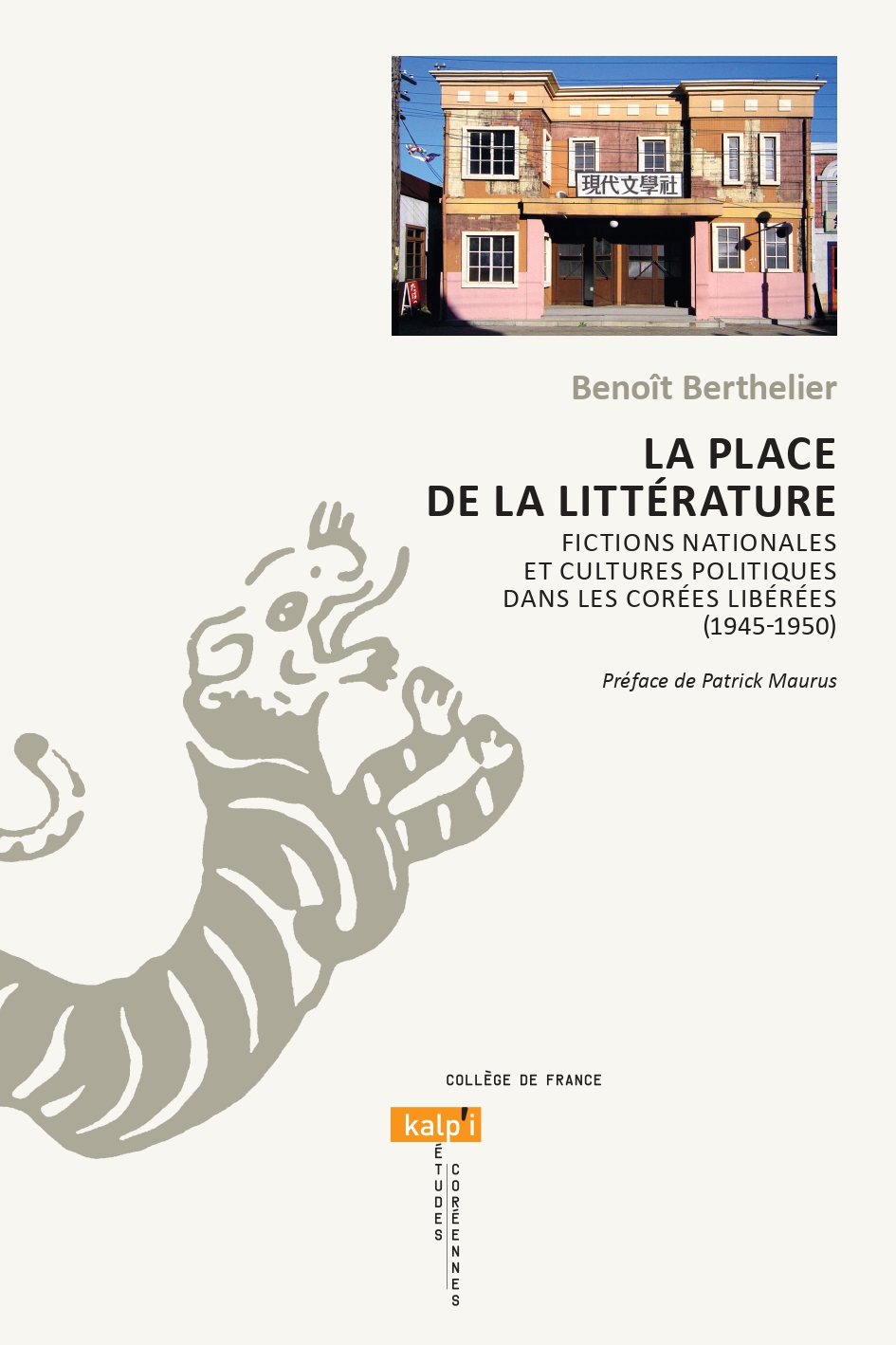La place de la littérature - Fictions nationales et cultures politiques dans les Corées libérées (1945-1950)
This book examines how Korean writers and poets produced and imposed new representations of the state and new narratives of the nation in the fragmented space that was Korea after of World War II. In 1945, Korea was two separate occupation zones on each side of the 38th parallel, a diaspora scattered across the remains of the Japanese empire, minorities in Central Asia and migrants across the world. From all these separate and disparate Koreas emerged a similar will to build a national culture, to overcome years of colonial assimilation, to prepare for political independence, to protect, discover and invent a Korean identity. A common project with multiple configurations, in which the imagined unity of the nation soon faces the reality of political division and aesthetic rivalries.
Drawing upon extensive archival work and sources from South Korea, North Korea, Japan and the former-USSR, the book highlights how writers in the Korean peninsula and its diaspora mobilized local literary traditions and reappropriated global aesthetic trends to gain discursive legitimacy and used their position to advocate for new representations and narratives of the Korean nation. It offers literary historians and sociologists an analysis of the relationship between politics and aesthetics beyond the traditional opposition between autonomy and heteronomy and a reflection on the conditions of legitimacy of literary utterance. It also invites those interested not only in Korea but also in regional and diasporic studies to rethink the role of political, social, and cultural borders in the production of knowledge.
Drawing upon extensive archival work and sources from South Korea, North Korea, Japan and the former-USSR, the book highlights how writers in the Korean peninsula and its diaspora mobilized local literary traditions and reappropriated global aesthetic trends to gain discursive legitimacy and used their position to advocate for new representations and narratives of the Korean nation. It offers literary historians and sociologists an analysis of the relationship between politics and aesthetics beyond the traditional opposition between autonomy and heteronomy and a reflection on the conditions of legitimacy of literary utterance. It also invites those interested not only in Korea but also in regional and diasporic studies to rethink the role of political, social, and cultural borders in the production of knowledge.

Editeur
Collège de France - Kalp'i, études coréennes
ISBN
978-2-905358-21-9
Publié
1 Dec 2022 – 31 Jan 2023
Domaine
Sciences humaines
Thème
Relations internationales et politique
Société
Politique nationale
Littérature
Histoire
Diasporas et migrations
Région
Asie orientale
Corée du Sud
Corée du Nord
Japon